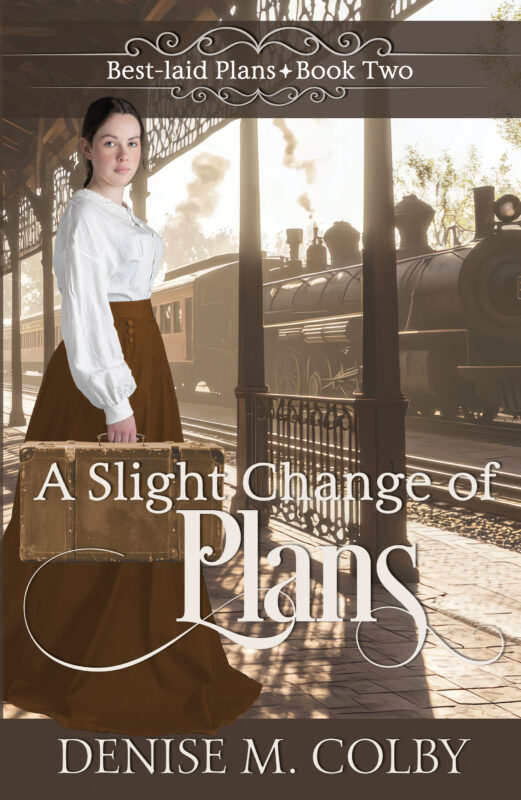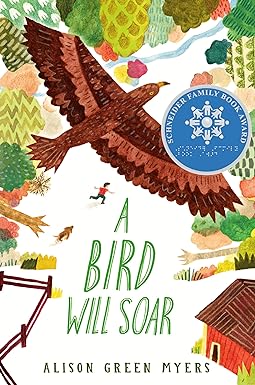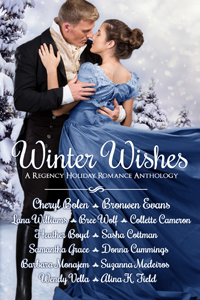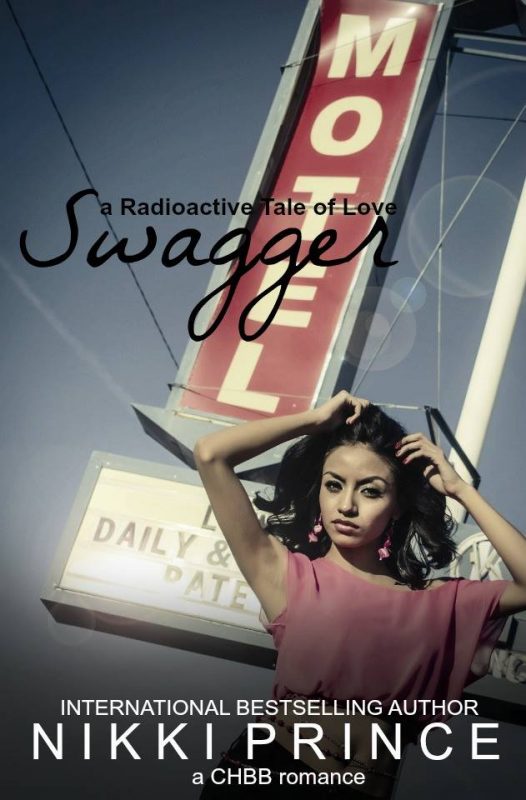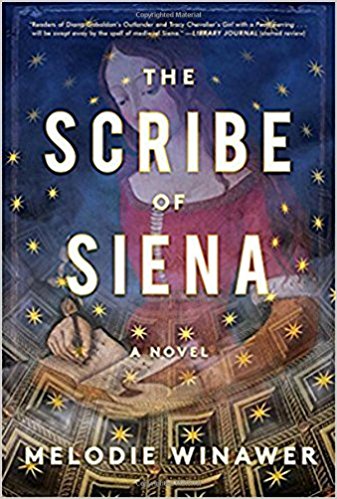WHEN AUTHORS ROAM
March 15, 2021 by Rebecca Forster in category The Write Life by Rebecca Forster tagged as #writingtips, traveling, writing craft
Hiking in Albania. Met a bride & groom. We were invited to the wedding.
I was going through my travel pictures – some as close as another town in Southern California, others as exotic as China and Albania – and was reminded that my writing was richer for each experience. But it wasn’t just the places that fired up my imagination. By far, it was the people I met that made the journey unforgettable. Here are the five groups I seek out on every trip because meeting them always inspires my work.
Keepers of the Keys: A hotel maid, a waiter, a shopkeeper. The interaction with these people might be fleeting, but they know what goes on behind closed doors. Sometimes the small details, the seemingly most insignificant secondary character, can make a good story great.
Merry Makers: Festivals, a local pub, a county fair are where people let their guard down. Join in. Experience the sights and sounds to enrich your descriptions. Festivals are especially fertile ground for romance writers.

A shepherdess we asked for directions. She told us she had 7 unmarried daughters for my son.
Wise old Sages: A simple hello, an offer to help carry a package, a greeting in their language, will make an instant friend of the elderly. From them you will learn the history of the country and the person. Seeing through their eyes enhances the pacing of your work and the backstory of your character.
The Village People: No, not the singing group. These are the folks outside the mainstream. They are a wonderful contrast to city dwellers. Taking the time to go off the beaten path to meet them is invaluable to those who write family sagas or historical fiction.
Fellow Travelers: Some people travel out of necessity, others are running away from something and some running to their destiny. The traveler you think most humble might be a titan of industry. One of my favorite encounters ended up as a major character in one of my books. He literally inspired a complete novel because he was not what he seemed.
When the pandemic comes to an end, travel. Near or far, it doesn’t matter. Meet one or all of these five people. They will be an inspiration. If you take the time to truly connect, you will inspire them too.
Books by Rebecca Forster
The Not-So-Happy Ending
January 15, 2021 by Rebecca Forster in category The Write Life by Rebecca Forster tagged as Psychological Thrillers, thrillers, writing craft Today I heard from a fan who, after having finished The Finn O’Brien Thrillers and the Witness Series, tackled my standalone books. Her comments have ranged from ‘wow, where did that come from‘ to ‘that was pretty dark‘. I admit it, before I started my series I was inspired by life experiences that were a little raw, so her comments didn’t surprise me. What did surprise me was what she said next.
Today I heard from a fan who, after having finished The Finn O’Brien Thrillers and the Witness Series, tackled my standalone books. Her comments have ranged from ‘wow, where did that come from‘ to ‘that was pretty dark‘. I admit it, before I started my series I was inspired by life experiences that were a little raw, so her comments didn’t surprise me. What did surprise me was what she said next.
“I love that your characters are so flawed, and you never wrap an ending up in a bow.”
Beyond Malice’s Amanda annoyed her at first, but the character brought back childhood memories that made the story more compelling. She understood and appreciated where the character was coming from because I had touched on something personal. Amanda ceased to be annoying and became a character to root for. Tara in Keeping Counsel had tons of baggage but she carried that weight and more. She agonized to the bitter end whether to sacrifice her own life or her best friend’s future. Character Witness, Before Her Eyes, and The Mentor explore flawed characters and their gut wrenching choices. This reader’s appreciation of imperfection is the mark of a true thriller lover.
My genre does not lend itself to bow endings. I write about the law and justice, about individuals against the system, about people who try to do the right thing but sometimes fail. A thriller ending must always be a draw. If I write about divorce, it is realistic that each character will lose family, assets, and stability, but will gain freedom, relief, and self-determination. Neither will be perfectly happy, one might be hurt more than the other, but the story can end no other way. Happiness is still a promise down the road. Will that be perfect? Probably not, and that will be another story. A happy ending for me is when my characters keep trying despite the roadblocks. That determination makes them heroic, and that’s why I love them.
For me an many thriller readers a happy ending is only satisfying when it is a little messy.
***
My messy, almost-happy ending, thrillers are FREE for Kindle Unlimited- $.99 to buy. Click a cover to read more.
0 0 Read moreHappy Fall… Or is it autumn?!
September 28, 2020 by Alina K. Field in category Quarter Days by Alina K. Field, Writing tagged as American English, British English, historical fiction, Spelling and Punctuation, writing craftA Quarter Days’ Post
Greetings! I’m back for my quarterly post about various and sundry things related to writing historical fiction.
In my last post I talked about the delights of playing with words and creating Tom Swifties.
Today I’m talking about the difference between English and English, as in American vs. British.
Is it fall? Or is it autumn? More on that later.

What’s in your tool kit?
Words are the building blocks we writers and speakers use to create story. We start hoarding those blocks early, and the resulting vocabulary says much about our own personal settings—where we grew up, what our social milieu is, what our family is like.
A case in point—my grandkids’ first words. We waited with bated breath for each munchkin’s first spoken vocabulary word. I coached them repeatedly (and unsuccessfully) to say “mama”.
But for both of them the first word was… DOG! (Yes, we do love our dogs.)

Fledgling writers
are taught “write what you know”. I wonder why? It’s a lot more fun to step outside the known world. But it does lead to challenges.
The biggest challenge: You don’t know what you don’t know.
For a 21st century American like me trying to set a story in Georgian England, there are a million opportunities to err.
First there’s the issue of etymology. Was a word used during this story’s time period?
A couple of examples from a Regency first draft I was beta reading for a friend:
- Hooligan: a great word, right? Unfortunately it dates to the 1890s.
- Foyer: Sadly, this dates to 1859.
And a couple from my own first drafts:
- Merry Widow: as my editor pointed out, this phrase references Franz Lehar’s operetta’s English title from 1907. Just a tad later than the Regency!!!
- Shack: Not only is this a later word (1878) but it’s of American or Canadian origin.
Which brings up another potential pitfall for the fledgling Regency Romance author.
American vs. British
Americans and Brits may speak the same language, but we use different words.

I’m fortunate to work often with an editor in England, and so I’ve compiled my own list of Americanisms for my own pre-editing purging.
Some more examples:
This very funny post from a British writer complete with illustrations.
And a list of 60 American English words translated into British English.
Spelling and punctuation are different too.
Once, long ago, while reading one of Georgette Heyer’s books, I wondered why they kept writing “cosy” instead of “cozy”. Why had so many misspellings slipped past the editor?
The British spelling was different enough to make it a jarring read for this ignorant and unaware American who happens to be a good speller. Fortunately, I’m wise to them now.
There are also punctuation differences. Here’s a short post about some of those.
And a long one about spelling differences.
I don’t believe Regency readers will pillory an author over this issue, so I’ve settled on using American spelling and punctuation in my stories.
One might say, in this area at least, I’m writing what I know!
Do you suppose we’ll ever go “one-world” on the spelling and punctuation rules?
Happy fall (and autumn) to everyone, and I’ll be back in December!
Images credits: autumn leaves and dog are from Stencil (I’d happily claim that dog though!); image of words is from Wikimedia Commons.
2 0 Read more
HOW TO FINISH YOUR BOOK. . .AND KEEP YOUR DAY JOB
July 3, 2020 by Janet Elizabeth Lynn and Will Zeilinger in category Partners in Crime by Janet Elizabeth Lynn & Will Zeilinger tagged as Craft, time management, writing craft
Writing a book is a work of love. However, things get in the way, i.e. work. We all dream of the day when we can make enough money to survive by writing. Until that day comes (if it ever does), we need to keep our full time jobs. We wrote and published our first five books working full time.
When do you write? This is a common question people always ask us. And it all comes down to time management and what you can do working around your family and work schedule.
Both of us use to go into work 1-2 hours early each morning just to write. We brought our lap tops and clicked away until it was time to start work. Egg timers are great for working an hour at a time. Don’t forget to bring your breakfast. Some people prefer to stay later at work which may work better for you. Be sure to plan at least an hour or more at a time.
Look for gaps in your day, including breaks, waiting for the mail, or meetings. Basically anytime you may have a few minutes, i.e., typing, or writing a note for characterization, dialogue or sub plot in a writing notebook, on a napkin/piece or scrap paper/paper towel and pocket it. You never know when inspiration will hit. Nothing is more frustrating than coming up with a fantastic idea, telling yourself you’ll remember and when it comes down to writing…forgetting.
Keep up the good writing.
Published authors Will Zeilinger and Janet Lynn had been writing individually until they got together and wrote the Skylar Drake Mystery Series. These hard-boiled tales are based in old Hollywood of 1955. Janet has published seven mystery novels, and Will has three plus a couple of short stories. Their world travels have sparked several ideas for murder and crime stories. This creative couple is married and lives in Southern California.
0 0 Read moreCHOICES
June 19, 2020 by Jenny Jensen in category On writing . . . by Jenny Jensen, Writing tagged as inspiration, writing, writing craft
In the oceans of writing instruction and advice available to anyone with a search engine I look for everything publishers have to say about current trends. Since you can’t really access publisher’s marketing info — and certainly not Amazon’s sales data — that’s as close to the horse’s mouth as I can get to learn about sales trends. That’s info that helps me help my clients. One offering stands out about contemporary fiction: keep the narrative fast paced. This digital world of FX, Twitter, flash fiction, etc. has our brains wired for lightening fast action. There’s not a lot of room for ruminating on superfluous details of landscape, the nature of family bonds or the sounds of church bells. The story has to gallop from the starting gate to capture and compel a reader. I think we all get that. What’s interesting to me are the narrative techniques an author can use to set and maintain that just-right pace.
Voice and tense are formidable tools to heighten tension, move action and hook and hold the reader. I don’t know what goes into an author’s decisions about what tense and voice to use but I’ll venture to guess it most often comes organically. When a protagonist begins to take shape in the creative sphere of the brain the author hears 3rd Person or 1st Person (which is tricky to write but such fun to read when done well) and the story grows in the mind in the present or past tense. Past tense is most common in fiction (and has been for eons) and is almost always 3rd Person. Present tense is more commonly used with 1st P voice; it creates an immediacy and intimacy that’s very engaging.
I’d never given a thought to 3rd Person present tense. Then I discovered the who-dun-it series of British writer Bruce Beckham. He’s amazing! Set in Britain’s Lake District his detective, Skelgill, is an irresistible mixture of irascible, self-centered, scruffy, generous and intuitive. Every character is roundly drawn and intriguing, the setting is as integral a character as the murderer and the pace never lags. Beckham accomplishes all of this in 3rd Person (omniscient) voice, present tense. It’s an unusual combination but in the hands of this author it is riveting.
It’s how he uses this tool to set and maintain a perfect pace and to draw the reader so fully into his world that amazed me. Reading a narrative described to you by an unknown, unseen, non-judgmental voice as the action unfolds just shouldn’t work. But it does. It’s like having your eyes covered at the movies while a very erudite friend describes what is happening on-screen.
Beckham is a master wordsmith and so uses dialog to show characterization and plot points but the present tense and 3rd P voice puts the reader in a front row seat as the action scenes unfold before our eyes. I didn’t feel as though I was right there — I was right there.
A writer’s choice of voice and tense would have to be dependent, in some part, on the story they are telling. Not every tale will fit just any combination. But it is amazing what a powerful difference the choice can make.

JENNY JENSEN
jennyjenseneditor.com
With a BA in Anthropology and English I pursued a career in advertising and writing and segued into developmental editing. It was a great choice for me. I love the process of creating and am privileged to be part of that process for so many great voices — voices both seasoned and new.
I’ve worked on nearly 400 books over 25 years, books by noted authors published by New York houses as well as with Indie bestsellers and Amazon dynamos. From Air Force manuals and marketing materials to memoirs, thrillers, sci fi and romance, my services range from copyediting to developmental coaching.
Having worked in advertising and marketing, I am always cognizant of the marketplace in which the author’s work will be seen. I coach for content and style with that knowledge in mind in order to maximize sales and/or educational potential. My objective is to help the author’s material stand out from an ever more crowded and competitive field.
0 0 Read moreAffiliate Links
A Slice of Orange is an affiliate with some of the booksellers listed on this website, including Barnes & Nobel, Books A Million, iBooks, Kobo, and Smashwords. This means A Slice of Orange may earn a small advertising fee from sales made through the links used on this website. There are reminders of these affiliate links on the pages for individual books.
Search A Slice of Orange
Find a Column
Archives
Featured Books
A BIRD WILL SOAR
WINTER WISHES: A REGENCY HOLIDAY ROMANCE ANTHOLOGY
Stories that will sweep you away . . .
More info →THE SCRIBE OF SIENA
The captivating story of a brilliant woman's passionate affair with a time and a place . . .
More info →Newsletter
Contributing Authors
Search A Slice of Orange
Find a Column
Archives
Authors in the Bookstore
- A. E. Decker
- A. J. Scudiere
- A.J. Sidransky
- A.M. Roark
- Abby Collette
- Alanna Lucus
- Albert Marrin
- Alice Duncan
- Alina K. Field
- Alison Green Myers
- Andi Lawrencovna
- Andrew C Raiford
- Angela Pryce
- Aviva Vaughn
- Barbara Ankrum
- Bethlehem Writers Group, LLC
- Carol L. Wright
- Celeste Barclay
- Christina Alexandra
- Christopher D. Ochs
- Claire Davon
- Claire Naden
- Courtnee Turner Hoyle
- Courtney Annicchiarico
- D. Lieber
- Daniel V. Meier Jr.
- Debra Dixon
- Debra H. Goldstein
- Debra Holland
- Dee Ann Palmer
- Denise M. Colby
- Diane Benefiel
- Diane Sismour
- Dianna Sinovic
- DT Krippene
- E.B. Dawson
- Emilie Dallaire
- Emily Brightwell
- Emily PW Murphy
- Fae Rowen
- Faith L. Justice
- Frances Amati
- Geralyn Corcillo
- Glynnis Campbell
- Greg Jolley
- H. O. Charles
- Jaclyn Roché
- Jacqueline Diamond
- Janet Lynn and Will Zeilinger
- Jaya Mehta
- Jeannine Atkins
- Jeff Baird
- Jenna Barwin
- Jenne Kern
- Jennifer D. Bokal
- Jennifer Lyon
- Jerome W. McFadden
- Jill Piscitello
- Jina Bacarr
- Jo A. Hiestand
- Jodi Bogert
- Jolina Petersheim
- Jonathan Maberry
- Joy Allyson
- Judy Duarte
- Justin Murphy
- Justine Davis
- Kat Martin
- Kidd Wadsworth
- Kitty Bucholtz
- Kristy Tate
- Larry Deibert
- Larry Hamilton
- Laura Drake
- Laurie Stevens
- Leslie Knowles
- Li-Ying Lundquist
- Linda Carroll-Bradd
- Linda Lappin
- Linda McLaughlin
- Linda O. Johnston
- Lisa Preston
- Lolo Paige
- Loran Holt
- Lynette M. Burrows
- Lyssa Kay Adams
- Madeline Ash
- Margarita Engle
- Marguerite Quantaine
- Marianne H. Donley
- Mary Castillo
- Maureen Klovers
- Megan Haskell
- Melanie Waterbury
- Melisa Rivero
- Melissa Chambers
- Melodie Winawer
- Meriam Wilhelm
- Mikel J. Wilson
- Mindy Neff
- Monica McCabe
- Nancy Brashear
- Neetu Malik
- Nikki Prince
- Once Upon Anthologies
- Paula Gail Benson
- Penny Reid
- Peter J Barbour
- Priscilla Oliveras
- R. H. Kohno
- Rachel Hailey
- Ralph Hieb
- Ramcy Diek
- Ransom Stephens
- Rebecca Forster
- Renae Wrich
- Roxy Matthews
- Ryder Hunte Clancy
- Sally Paradysz
- Sheila Colón-Bagley
- Simone de Muñoz
- Sophie Barnes
- Susan Kaye Quinn
- Susan Lynn Meyer
- Susan Squires
- T. D. Fox
- Tara C. Allred
- Tara Lain
- Tari Lynn Jewett
- Terri Osburn
- Tracy Reed
- Vera Jane Cook
- Vicki Crum
- Writing Something Romantic
Affiliate Links
A Slice of Orange is an affiliate with some of the booksellers listed on this website, including Barnes & Nobel, Books A Million, iBooks, Kobo, and Smashwords. This means A Slice of Orange may earn a small advertising fee from sales made through the links used on this website. There are reminders of these affiliate links on the pages for individual books.








































